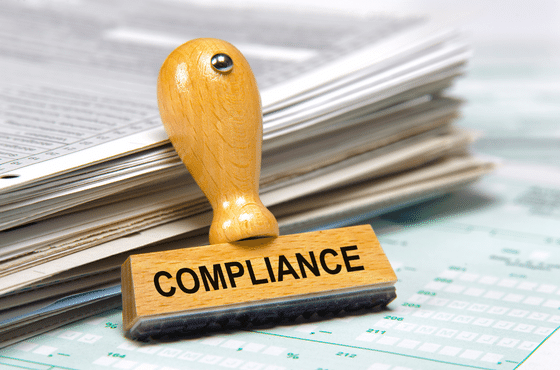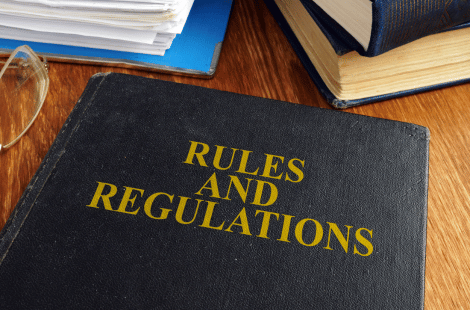
What is Compliance?
In its simplest form, compliance means adhering to a rule, such as a policy, standard, specification, or law. In the corporate world, compliance is about ensuring that organizations follow the laws and regulations pertinent to their business. This can include federal and state laws, industry-specific guidelines, and internal policies.
Types of Compliance
Regulatory Compliance
Regulatory compliance is one of the most common forms that companies interact with. This involves following laws and rules set forth by government bodies at the local, state, or federal level. Depending on the industry, this could range from general business operations to very specific practices. For instance, financial institutions must comply with various banking and securities laws, like the Dodd-Frank Wall Street Reform and Consumer Protection Act in the U.S., to ensure transparency and protect consumers.
Corporate Compliance
Corporate compliance pertains to internal governance and follows the rules, policies, and standards that a company sets for itself. While not legally mandated, failing to adhere to these rules can result in disciplinary action within the organization. These guidelines are often outlined in company handbooks, contracts, or internal websites and might encompass ethical conduct, internal auditing, and quality assurance.
IT Compliance
This is especially critical in highly-regulated industries such as healthcare, finance, and aviation. These industries have their own set of stringent rules that go beyond general business operations. For example, healthcare providers in the United States need to be in compliance with the Health Insurance Portability and Accountability Act (HIPAA), which safeguards patient information.
Cybersecurity Compliance
With the digital transformation of businesses, cybersecurity compliance has gained immense importance. Companies need to follow best practices to protect data and information systems. This could involve compliance with frameworks like the National Institute of Standards and Technology’s cybersecurity framework or sector-specific guidelines like the Payment Card Industry Data Security Standard (PCI DSS) for businesses handling credit card transactions.
International Compliance
For companies that operate across borders, international compliance becomes an added layer of complexity. This can involve adhering to both the domestic laws of each country in which a company operates and international laws that govern trade, human rights, and environmental impact.
Why Does Compliance Matter?
Legal Repercussions
Failure to comply with relevant laws and regulations can lead to severe legal penalties, including fines and sanctions. In extreme cases, it can even result in the dissolution of the company.
Brand Reputation
Compliance isn’t just about avoiding fines; it’s also about building trust. Companies that consistently adhere to legal and ethical standards are viewed as more trustworthy, enhancing their reputation and credibility in the market.
Competitive Advantage
Being compliant can offer a distinct competitive edge. It can make a company more appealing to consumers and investors who are concerned about ethical business practices.
Operational Efficiency
Compliance measures often encourage organizations to streamline their operations, implement best practices, and improve the quality of their products or services, which in turn can lead to increased efficiency and reduced waste.
Essential Elements of an Effective Compliance Program
Risk Assessment
An organization needs to regularly assess and identify the risks associated with its operations. This proactive approach enables the company to tailor its compliance program effectively.
Policy Development
Based on the risk assessment, an organization should develop and implement policies that are easy to understand and follow.
Training and Education
It’s not enough to have policies in place; employees must know, understand, and follow them. Regular training sessions can help in making the workforce aware and compliant.
Monitoring and Auditing
Regular checks must be in place to ensure that the compliance policies are being followed, and if not, to understand why they failed.
Enforcement and Discipline
A good compliance program should have strict enforcement and disciplinary procedures to deal with violations.
Continuous Improvement
The regulatory landscape is continually changing. Hence, compliance is not a one-time activity but an ongoing process that needs to be reviewed and improved continually.
Case Studies: The Importance of Compliance
Enron Scandal
One of the most notorious corporate scandals, Enron, could have been avoided with better compliance measures. The company’s failure led to the introduction of the Sarbanes-Oxley Act that imposed stricter compliance requirements on companies.
Facebook and GDPR
Facebook faced a fine of $5 billion for violating GDPR compliance, highlighting the importance of understanding and implementing necessary measures to comply with data protection laws.
Conclusion
Compliance is not just a legal requirement but a critical component of a company’s success. It builds trust, enhances reputation, and can offer a competitive edge in the market. With regulatory environments becoming more complex, having an effective compliance program is not just advisable but imperative for long-term success.
By understanding what compliance is and why it’s essential, organizations can better prepare themselves for the challenges and opportunities that lie ahead in our increasingly regulated world. Whether it’s ensuring data protection, financial reporting, or workplace ethics, compliance is a multi-faceted endeavor that has a profound impact on an organization’s viability and integrity.
Remember, compliance is not a cost of doing business; it’s an investment in long-term sustainability and success.







